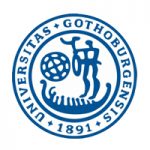项目介绍
The University of Gothenburg tackles society’s challenges with diverse knowledge. 56 000 students and 6 600 employees make the university a large and inspiring place to work and study. Strong research and attractive study programmes attract researchers and students from around the world. With new knowledge and new perspectives, the University contributes to a better future.
At the School of Global Studies, research in Social Anthropology is conducted on a host of themes related to the cultural and social phenomena in today’s globalized world. Topics include climate change, migration, religion, gender, cultural heritage, sustainability and consumption, markets, health and indigenous peoples. Traditionally, extended periods of fieldwork and participatory observation have been hallmarks of the discipline. Its research methods explore how the practices and experiences of people’s everyday lives interplay with overarching social processes.
The School of Global Studies, University of Gothenburg, announces a full-time doctoral position in Social Anthropology with focus on health and medical anthropology.
Medical anthropology examines the social patterns that determine responses to illness and suffering. It investigates the diverse experiences of care and bodily practices that influence health and healing. Medical anthropology encompasses the study of both micro-level factors, such as clinical interactions, and macro-level determinants, including the creation and commodification of biomedical knowledge, as well as structural inequalities in the distribution of essential resources like food, water, healthcare, and infrastructure. These factors facilitate or constrain care, mobility, and existence for both humans and non-humans. The PhD candidate may also examine the intersections between environmental and health issues, challenging the conventional separation of human and non-human health from a more than human perspective.
Proposals may address issues such as global public health interventions and disaster response, health activism, hospital ethnography, health professional education, traditional medicine, community participation and healthcare system change, health and migration, healthcare digitalization, work-place wellbeing, mental health or pharmaceutical markets. Research may also inquire the intersection of human and non-human health engaging critically One Health or Planetary Health frameworks, by addressing care infrastructures, food production, water management, antibiotic resistance, spillover, animal care, and waste disposal.
Job assignments
The purpose of undertaking doctoral studies is to acquire the knowledge and skills necessary for conducting independent research within the field of Social Anthropology. The doctoral studies comprise one year of coursework and three years of research, culminating in the production of a dissertation that makes a significant and original contribution to the research field. The knowledge and skills that are acquired during the studies should be applicable to postdoctoral research or other professional work. The position is salaried and covers four years (full-time equivalent, fixed term), beginning in August 2025. The doctoral candidate may undertake departmental duties corresponding to up to 20% of a full-time position, in which case the duration of the appointment will be extended accordingly. There are no tuition fees. The candidate is expected to work in Gothenburg (except during fieldwork) and during the first year complete PhD courses as well as develop the research project.
Eligibility
Applicants must fulfil both general and specific entry requirements.
An applicant meets the general entry requirements for third-cycle studies if they have obtained (Higher Education Ordinance Ch.7, Sec.39):
- a degree at the second-cycle level,
- at least 240 Higher Education Credits, of which at least 60 must be at the second-cycle level, or
- largely equivalent knowledge in other ways in Sweden or abroad.
An applicant meets the specific entry requirements for third-cycle studies if they have completed (Higher Education Ordinance Ch.7, Sec.40) at least 90 university credits in social or cultural anthropology or a closely related field.
Assessment
Applicants will be assessed based on the general and specific eligibility requirements and their estimated ability to benefit from the study programme. The assessment places particular focus on:
- A research proposal (max 2,000 words including list of references) that formulates some preliminary ideas of how the applicant envisions that his/her PhD work will contribute to the research theme in question. This is assessed based on the applicant’s ability to formulate a research problem in relation to previous research, as well as knowledge and handling of methodological and theoretical issues. The application should include an ethnographic contextualisation, purpose and research questions, analytical framework, method and ethical assessments.
- A Master’s thesis, academic papers and/or other relevant works. These will be used to assess the applicant’s ability to formulate and delimit research tasks and analyze and present research results.
- A CV summarizing relevant work experience, language proficiency and other skills.
- Grades achieved in undergraduate and postgraduate studies.
- Interviews will be held with shortlisted applicants.
The applicant’s skills, experience, creativity and excellence in research are also assessed based on the points above.
Decisions on the shortlist will be made latest in March and final decisions in April 2025.
The Head of Department makes all admission decisions at the third-cycle level. This decision cannot be appealed.
For further information regarding the position
Lisa Åkesson, Professor in Social Anthropology at The School of Global Studies, University of Gothenburg
Contact HR Administrator Sandra Lennerholt if you have questions about the recruitment process, sgshumanresources@globalstudies.gu.se
Unions
Union representatives at the University of Gothenburg: http://www.gu.se/english/about_the_university/job-opportunities/unionrepresentatives
How to apply
In order to apply for a position at the University of Gothenburg, you have to register an account in our online recruitment system.
The application must include:
- A cover letter (of maximum 1000 words).
- A research proposal of maximum 2,000 words including references.
- A Master’s thesis and/or any other relevant papers or publications. Submitted texts must be written in Swedish or English. Any translated versions must be accompanied by the original text.
- A CV.
- Copies of diplomas and/or academic transcripts verifying that the candidate meets the general and specific entry requirements stated above. Evidence of other relevant qualifications.
- The names of two references and their contact information. Please note that no letters of recommendation will be considered.
It is the applicant’s responsibility to ensure that the application is complete. No changes or additions are allowed after the final submission date.
Doctoral studies at the School of Global Studies requires physical presence to conduct the studies. If the admitted applicant needs a residence permit for researcher to pursue studies in Sweden, the School of Global Studies has the right to revoke the admission decision if the applicant cannot present a valid residence permit no later than at the start of the studies.
For questions regarding the handling of the application portal or technical problems, please contact rekrytering@gu.se
Closing date: 17 of February 2025
联系方式
电话: +46 31-786 00 00相关项目推荐
KD博士实时收录全球顶尖院校的博士项目,总有一个项目等着你!




